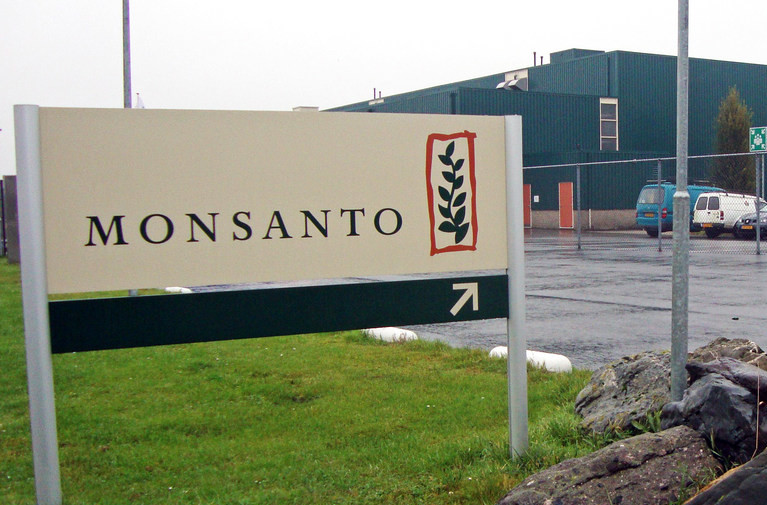On August 18, 2025, Bayer’s Monsanto unit announced a settlement resolving lawsuits filed by over 200 plaintiffs—teachers, students, and parents—who claimed exposure to polychlorinated biphenyls (PCBs) at Sky Valley Education Center in Monroe, Washington, caused serious health issues. Below is a detailed overview of the settlement, its background, and implications, based on available sources.
Background of the Case
- PCB Contamination at Sky Valley:
- Source: PCBs, toxic chemicals banned in the U.S. in 1979, were found in aging fluorescent light fixtures and caulk at Sky Valley Education Center, built in the 1950s and 1960s. In 2014, leaking light fixtures released oily, yellow PCB liquids into classrooms, exposing occupants.
- Health Claims: Plaintiffs alleged neurological issues, developmental disorders, autoimmune problems, cancers, thyroid conditions, and other ailments due to PCB exposure. Specific complaints included brain damage, hormonal imbalances, skin lesions, and early puberty in children.
- Monsanto’s Role: Monsanto, acquired by Bayer in 2018, was the sole U.S. manufacturer of PCBs until 1977, producing 99% of the chemicals used in industrial applications like lighting and building materials. Lawsuits claimed Monsanto knew of PCB toxicity but failed to warn the public adequately.
- Legal History:
- Lawsuits Filed: Over 200 plaintiffs, including students, parents, and teachers, filed multiple lawsuits against Monsanto and its spinoff, Pharmacia LLC, in King County Superior Court, starting around 2016. The Monroe School District was also sued by some plaintiffs but settled separately.
- Prior Verdicts: Before the settlement, Monsanto faced 10 trials, resulting in plaintiff verdicts totaling over $1 billion, including:
- $857 million in December 2023 for seven former students and parents (five students, two parent volunteers), with $73 million in compensatory damages and $784 million in punitive damages.
- $275 million in October 2022 for 13 plaintiffs.
- $185 million in July 2021 for three teachers with brain damage.
- $100 million in January 2025 for four of 15 plaintiffs.
- $62 million in November 2021 for eight plaintiffs.
- $21.4 million in June 2022 for four plaintiffs.
- Appeals and Overturns: In May 2024, the Washington Court of Appeals overturned a $185 million verdict due to a choice-of-law error (applying Missouri law instead of Washington law). The case was appealed to the Washington Supreme Court, which heard arguments in February 2025 but had not ruled by the settlement date, resolving these claims before further rulings.
Settlement Details
- Scope: The settlement covers all lawsuits related to PCB exposure at Sky Valley Education Center, involving over 200 plaintiffs. It marks the 11th PCB-related case in the Seattle area to be resolved.
- Financial Terms: The exact payout per plaintiff remains confidential, but Bayer allocated a $618.3 million provision in August 2025 to address PCB liabilities, including this settlement. Earlier settlements, like Seattle’s $160 million in July 2024 and Washington state’s $95 million in June 2020, indicate significant financial exposure.
- Impact: The agreement avoids further trials, reducing Monsanto’s litigation risks. Bayer’s shares rose 2.3% in Germany post-announcement, reflecting investor relief. However, ongoing appeals from prior verdicts and potential future lawsuits remain unresolved.
- Monroe School District Settlement: Separately, in November 2021, the Monroe School District offered a $34 million settlement to nearly 200 students and parents, funded by its insurance policy to protect district finances. This excluded staff due to Washington state laws barring employee negligence suits against employers. After attorneys’ fees, estimated payouts were $171,000 per exposed child, $58,000 per exposed adult, and $2,300 per family member.
Key Issues and Challenges
- Proving Causation: The lawsuits faced challenges in establishing direct links between PCB exposure and health issues, as blood, air, and other tests often showed PCB levels below thresholds deemed unsafe by Monsanto. The company argued injuries could stem from other causes (e.g., mold, poor ventilation), but juries consistently found Monsanto liable for inadequate warnings and product safety.
- School District Accountability: Monsanto blamed the Monroe School District for failing to replace outdated fixtures despite 1990s warnings. The district’s slow response, even after EPA intervention in 2014, and false assurances of complete PCB removal, compounded the crisis.
- Broader PCB Legacy: PCBs, known as “forever chemicals” due to their persistence, remain in thousands of U.S. schools, posing ongoing risks. The Sky Valley case highlights challenges in toxic tort litigation and the need for environmental remediation, as seen in Seattle’s $160 million settlement for Duwamish River cleanup.
Implications
- For Plaintiffs: The settlement provides financial relief, avoiding prolonged litigation, but confidential terms leave questions about individual compensation adequacy, especially given the severe health impacts reported.
- For Monsanto/Bayer: The agreement mitigates immediate litigation costs but doesn’t resolve broader PCB liabilities, with billions in potential payouts looming. Bayer’s strategy to enforce indemnity contracts with corporate customers like Paramount Global may offset future costs.
- For Communities: Funds from related settlements, like Seattle’s, will support environmental cleanup, benefiting public health. However, the case underscores the persistence of PCBs in aging infrastructure, requiring ongoing vigilance and remediation.
Critical Analysis
The settlement reflects a pragmatic resolution for Monsanto, avoiding further costly trials after substantial jury awards. However, the confidential terms and unresolved appeals limit transparency, potentially leaving plaintiffs and the public uncertain about justice served. The case also exposes systemic issues in school safety and regulatory oversight, as the Monroe School District’s negligence and Monsanto’s historical knowledge of PCB risks were both criticized. While Bayer’s financial provision signals preparedness, the broader challenge of PCB contamination in schools nationwide remains unaddressed, suggesting more litigation may follow.
Conclusion
Monsanto’s August 2025 settlement with over 200 Sky Valley plaintiffs marks a significant step in addressing PCB exposure claims, funded by a $618.3 million provision. While it resolves immediate lawsuits, the case highlights ongoing challenges in proving toxic exposure, ensuring school safety, and managing Monsanto’s legacy liabilities. Affected communities should monitor legal updates via sources like Law360 or Reuters and advocate for continued environmental cleanup.
